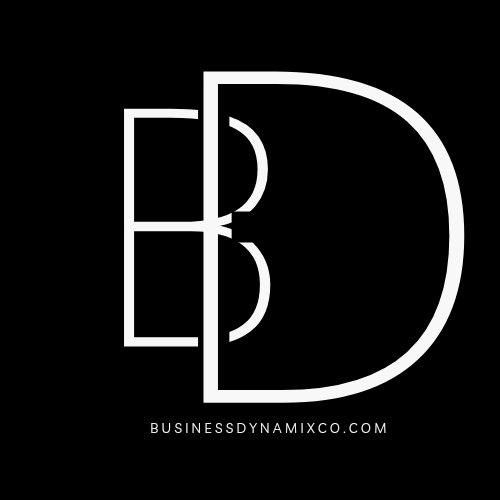Being an Entrepreneur isn’t an easy journey.
Reaching the world population around 8 billion,
we find around only 594 million entrepreneurs in this world.
As a new business are launched the risk of failing to achieve growth rates is around 65 to 70% in year 2023.
No matter how enthusiastic or self-assured they may be in the beginning, entrepreneurs need to prepare for the difficult trip ahead of them.
The main ingredients for entrepreneurial success are perseverance, creativity, and good fortune.
Best Finance Hacks For Business are :
- Budget Techniques – methods used to manage and allocate financial resources effectively.
- Cash Flow Management – Analysing how money flows in and out of your company
- Tax Planning – Entrepreneurs and business owners must pay income tax on the profits made from their venture .
Some other Finance Hacks to Consider :
#1. Make a Budget
#2. Factor in debt
#3. Separate Savings Account
#4. Pay yourself First
Still, another component turns out to be equally important.
Financial management must be a part of an entrepreneur’s skill set to survive in the competitive and expensive business landscape .
Fortunately, the business owners who achieved success are looking out for newcomers, providing tips to help them gain financial footing for their small businesses.
Here are 5 financial hacks every entrepreneurs needs to know:
#1.Budget Techniques
Budgeting Techniques are methods used to manage and allocate financial resources effectively.

Budgeting money comes easy to certain people; they enjoy being structured and tracking statistics.
Others may find it more difficult.
Facts and figures are not their strong suit, and frequent monitoring is tiresome.
Even if you fall into the latter category, there are a few fast tactics that can help.
Here are four easy Budget techniques that will make budget planning a breeze:
1 Tracking
2 Spending
3 Be Flexible
4 Consider your Future
Zero-Based Budgeting (ZBB):
Zero-based budgeting requires every expense to be justified, starting from zero.
It involves allocating funds based on the needs of the upcoming period rather than using historical data.
Example: A small business decides to implement zero-based budgeting for the next quarter.
Instead of simply rolling over previous budgets, each department is required to justify all expenses from scratch.
This encourages cost-conscious decision-making and can lead to more efficient resource allocation.
Incremental Budgeting
Incremental budgeting involves making adjustments to the previous period’s budget based on changes in circumstances or goals.
It typically involves adding or subtracting a percentage or fixed amount from the existing budget.
Example: A marketing department uses incremental budgeting to plan for the next fiscal year.
Based on anticipated changes in advertising costs and promotional activities, they increase their budget by 5% compared to the previous year.
This method provides stability while allowing for some flexibility.
Activity-Based Budgeting (ABB):
Activity-based budgeting allocates resources based on the expected level of activities or operations within an organization.
It focuses on the cost drivers of specific activities rather than relying solely on historical data.
Example: A manufacturing company adopts activity-based budgeting to allocate overhead costs.
They identify different activities such as machine setup, material handling, and quality control, and allocate resources based on the estimated costs of each activity.
This helps in better cost control and resource utilization.
Cash Flow Budgeting:
Cash flow budgeting focuses on managing the inflow and outflow of cash within a specific period.
It helps organizations ensure they have enough cash to cover expenses and investments.
Example: A startup creates a monthly cash flow budget to monitor its financial health.
By projecting revenues and expenses for each month, they can identify potential cash shortages and take proactive measures such as delaying certain expenditures or securing additional funding to maintain liquidity.
Flexible Budgeting:
Flexible budgeting adjusts spending based on changes in activity levels or other factors.
It allows for variations in revenue and expenses, making it suitable for dynamic environments.
Example: A retail chain uses flexible budgeting to account for seasonal fluctuations in sales.
Instead of sticking to a fixed budget, they adjust their spending on marketing, inventory, and staffing based on changes in demand.
This enables them to adapt quickly to market conditions and optimize resources accordingly.
#2.Cash Flow Management

You should undertake a quarterly cash flow analysis in addition to preparing cash flow statements.
Analysing how money flows in and out of your company exposes you to potential issues.
As an entrepreneur, it can also assist you in determining which sections of your business are causing problems.
Catching problems early and correcting them might keep your company from becoming trapped in a negative cash flow loop.
#3.Tax Planning

Entrepreneurs and business owners must pay income tax on the profits made from their venture .
This can be a substantial sum, and they are constantly looking for deductions and exemptions to reduce their tax liability.
Income tax is one of the most challenging things to understand.
• Hire your own family friends or relatives: Hiring relatives may work out to be a big step toward tax reduction .They may get salary payments in the same manner as other staff members.
• Travelling and accommodation: It is common for entrepreneurs to travel places for business purpose. This is done more extensively if entrepreneurs have branches spread across several cities.
• Invest more in marketing: Digital marketing can help you reach more potential consumers and increase the likelihood that you will find new ones, so if you are still utilizing traditional marketing techniques, it is time to give it a try.
#4.Investment Strategies
Entrepreneurs are used to taking risks.
They have experienced what it’s like to invest personal capital, be it in the form of time, energy, or resources .
A successful startup can make a sizable profit.
The story of entrepreneurial success doesn’t end there, even though converting a concept into a successful business is the pinnacle of the achievement.
Owners of businesses still need to choose what to do with their hard-earned profits.
#5.Financial Tools and Apps
We bring you some of the best apps, which can make accounting for your startup a walk in the clouds.
Mint:
Overview: Mint is a popular personal finance app that allows users to track their spending, create budgets, and get a comprehensive view of their financial health by aggregating bank accounts, credit cards, and investments in one place.
Key Features: Budgeting tools, bill tracking, credit score monitoring, investment tracking, and customized alerts for unusual account activity.
Pros: User-friendly interface, automatic categorization of transactions, and the ability to set financial goals.
Cons: Some users might have concerns about security since it requires access to personal financial accounts.
It’s a free software.
Freshbooks:
Overview: FreshBooks is cloud-based accounting software designed primarily for small businesses and freelancers. It helps in managing invoices, expenses, time tracking, and client communications.
Key Features: Invoicing, expense tracking, project management, time tracking, and reporting functionalities.
Pros: Easy-to-use interface, excellent invoice customization options, and good customer support.
Cons: Pricing might be a bit higher compared to some other alternatives, and some users find the learning curve steep.
This software is a paid software which offers a strong value with plans around 17$ to 55$ per month, after a free trail.
Xero:
Overview: Xero is another cloud-based accounting software suitable for small to medium-sized businesses. It offers features for invoicing, bank reconciliation, inventory management, and payroll.
Key Features: Invoicing, bank reconciliation, inventory tracking, expense claims, and payroll management.
Pros: User-friendly interface, strong reporting capabilities, and a wide range of integrations with third-party apps.
Cons: Might lack some advanced accounting features required by larger businesses.
It is also a paid software starts from 32$per month.
Quickbooks(intuit):
Overview: QuickBooks is a comprehensive accounting software catering to businesses of all sizes. It offers a range of features for invoicing, expense tracking, payroll, inventory, and more.
Key Features: Invoicing, expense tracking, payroll management, inventory tracking, and tax preparation tools.
Pros: Robust functionality, extensive integrations, and different versions tailored for various business sizes and industries.
Cons: Pricing might be higher for advanced features, and some users find the interface a bit overwhelming.
A paid software starts from simple start plan 30$/month to advanced plan 200$/month
Each of these social media apps has its own strengths and target audiences, so entrepreneurs should consider their specific business needs and preferences when choosing the right tool for their financial management.
To visit each website :
For Wave Official Website : Wave
For Quickbooks Official Website : Quickbooks
For Xero Official Website : Xero
For Freshbooks Official Website : Freshbooks
For Mint Official Website : Mint
conclusion:
“Mastering the art of financial management is not just about numbers; it’s about securing the foundation of your entrepreneurial journey.”
By implementing these financial hacks, entrepreneurs can navigate the complexities of finances with confidence and strategy.
Remember, successful entrepreneurship isn’t just about the brilliance of your idea or the dedication to your work, even the Social Media Platforms Plays a vital role for Entrepreneurs;
it’s also about the astuteness with which you manage your finances .
Whether it’s budgeting smartly, investing wisely, or mitigating risks, these financial hacks form the backbone of a resilient business.
FAQs
1 What are some quick budgeting tips for entrepreneurs?
Entrepreneurs, prioritize your expenditures, make clear goals, and keep meticulous records of your outlays to streamline your money. Review and tweak your budget on a regular basis, utilizing technology to increase productivity. This proactive strategy permits flexibility in a changing market while guaranteeing that resources are in line with your company’s objectives.
2 How can I effectively manage cash flow for my business?
Effectively managing your business’s cash flow involves proactive planning and monitoring. Forecast future cash movements, streamline invoicing processes, and diligently track expenses. Maintain a cash reserve, negotiate favorable terms, and regularly review cash flow statements to ensure stability and readiness to navigate any financial ebbs and flows.
3 What are the essential tax planning strategies every entrepreneur should know?
Maximizing deductions, attractive business structures, and exploiting available tax credits are all important tax planning tactics for businesses. It is critical to maximize deductible expenses, including those connected to business operations and retirement contributions. Furthermore, remaining aware about tax rules and getting professional advice assures compliance and identifies potential savings, ensuring your company’s financial stability.
4What are some effective risk management techniques for small businesses?
Several essential strategies are required for effective risk management in small businesses. To begin, diversify your clientele and income streams to reduce dependency concerns. Second, get insurance customized to your industry and probable hazards, such as liability, property, and business interruption insurance. Finally, develop an emergency plan describing procedures to take during crises such as market downturns or supply chain interruptions. Regular assessments and modifications to these techniques improve resilience and defend against unexpected challenges.
5 What are the best practices for debt management for business owners ?
Business owners can practice successful debt management by prioritizing the repayment of high-interest loans while making minimal payments on others to avoid penalties. Debt consolidation or negotiating better terms with creditors can lower interest rates and alleviate the load. Furthermore, developing a realistic payback strategy and regularly monitoring cash flow helps assure timely payments, limiting new debt accumulation, and nurturing a stronger financial position for the company.
6 How can I improve my negotiation skills to benefit my business financially?
Improving negotiation abilities is critical for increasing a company’s financial prospects. Engage in active listening, research your competitors’ perspectives, and effectively express the value proposition of your offers. Accept flexibility and strive for mutually beneficial outcomes, leveraging relationships and information to get better agreements, pricing, or terms that benefit your bottom line. Regular practice, feedback, and learning from successful negotiations all help to perfect these talents over time, enhancing your company’s financial success through astute deal-making.

Founder of Businessdynamixco.com and top3s.businessdynamixco.com.
Website Builder, Growth Hacker, always get Excited in writing Articles with my little Experience !






